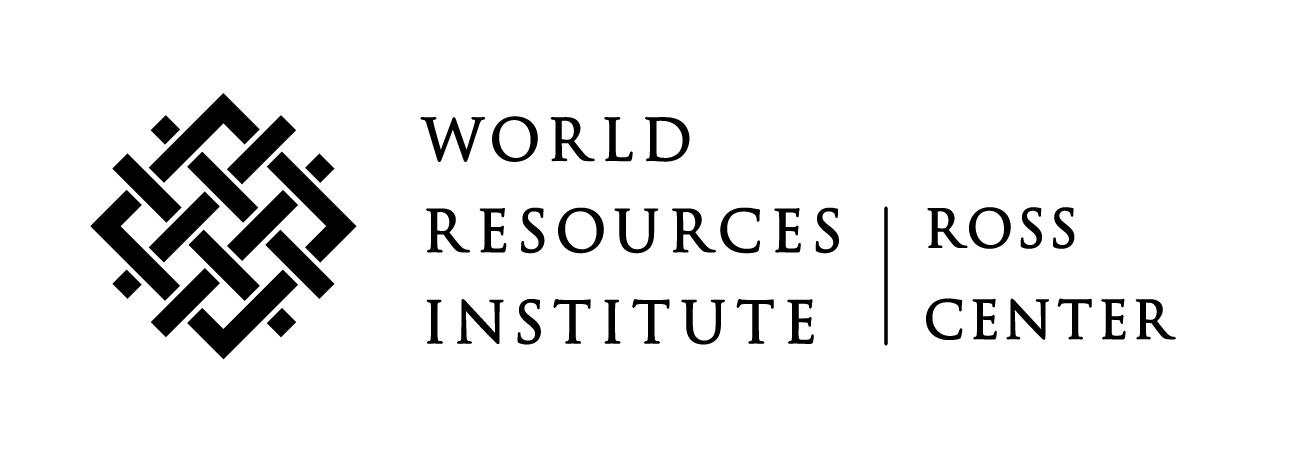Student Design Awards winners: The right to breathe
Brief 4: How might we ensure that everyone living in areas with poor air quality is guaranteed their right to clean air?
Winners:
- Pulsair - Emily VanderMey, California College of the Arts, USA
Liz Wang, School of Visual Arts, USA
Samantha Tung, Loughborough University, England
- Kuki - Emma Brookes, University of Portsmouth, England
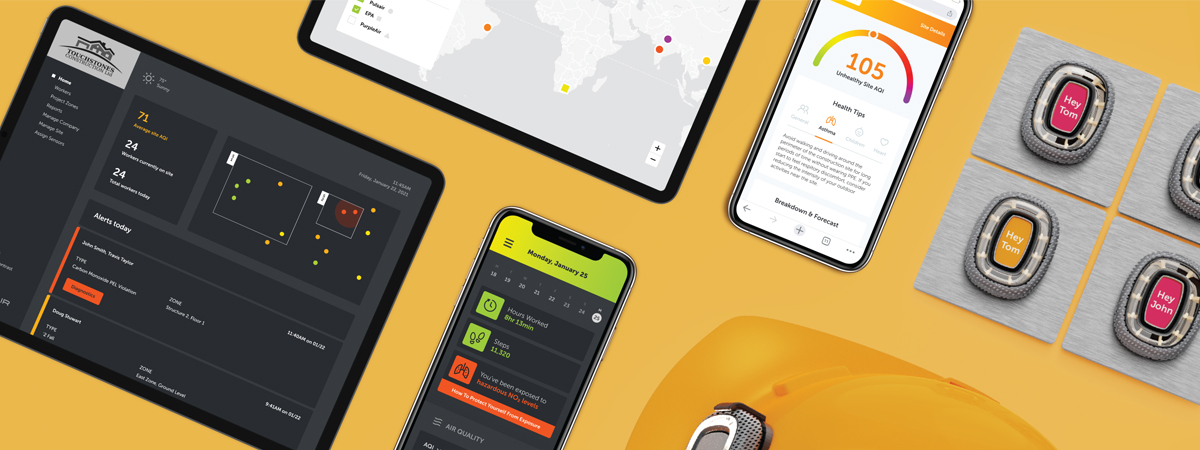
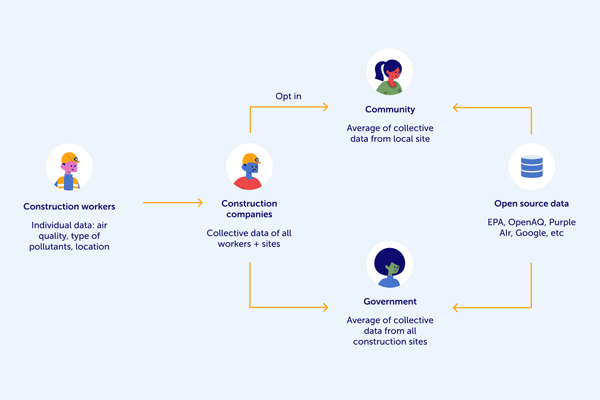
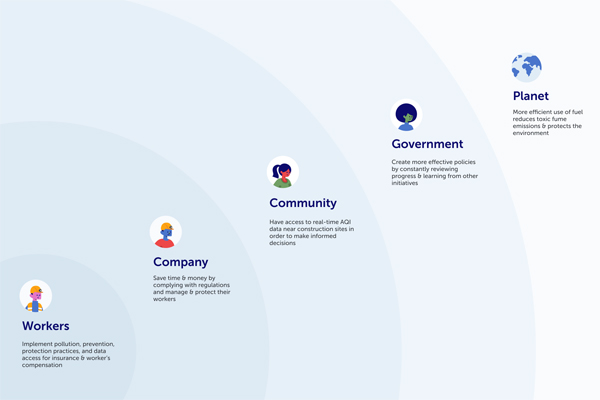
Approximately 14 percent of dangerous particulate matter and 11 percent of greenhouse gas emissions come from the construction industry and the workers themselves can be particularly vulnerable to this air pollution. Pulsair is a solution that aims to increase awareness of the issue among workers and capture data to improve monitoring. There is a wearable sensor that can be easily attached to workers’ protective equipment to accurately track their exposure to air pollution, while linking to a wider analytic database that allows better real-time monitoring of the site. This data can be shared with the company and local government to satisfy compliance requirements and researchers to better understand how air pollution works on the ground.
Emily VanderMey, California College of the Arts, USA
Liz Wang, School of Visual Arts, USA
Samantha Tung, Loughborough University, England
Circular Design Lab Award of £2,000
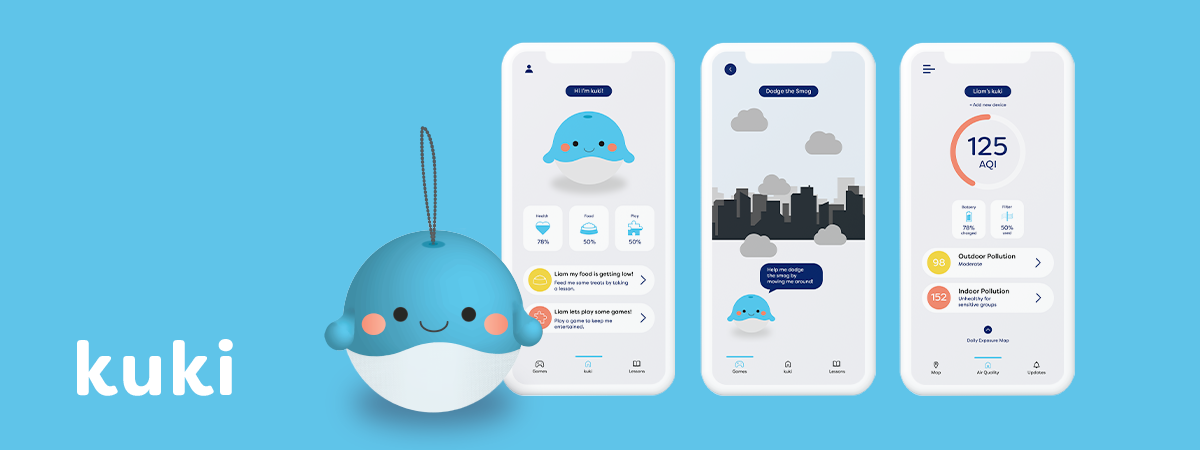
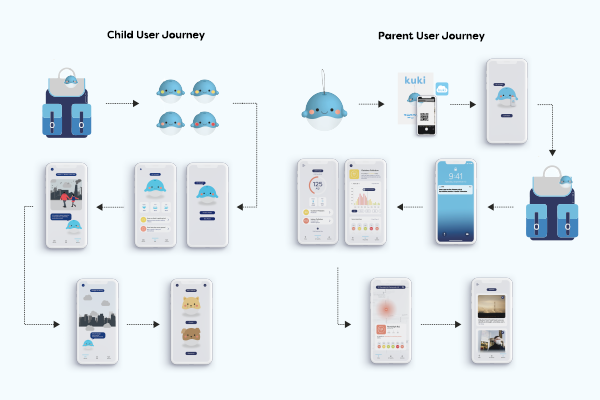
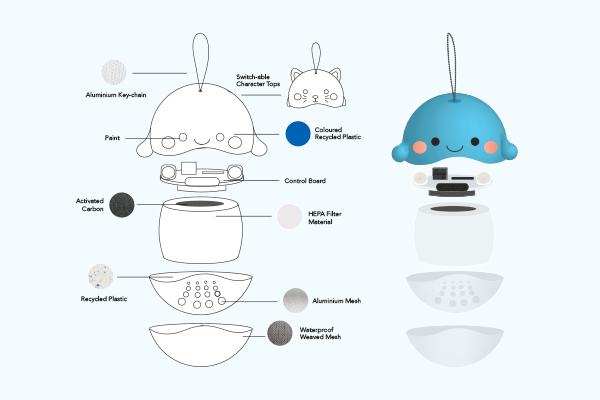
More than 90 percent of the world's children breathe toxic air every day (World Health Organisation) yet this often invisible problem can be difficult to teach and anxiety inducing. Kuki is an air quality pet designed to be used by young children and their parents. Part air quality sensor and part toy, Kuki links to a phone app and uses games and rewards to teach young children about air pollution and behavioural changes they can make. The physical sensor gives valuable information to parents on the air quality the child is exposed to in their home and elsewhere, while the child is encouraged to take actions to maintain or improve the health of their pet while learning about the topic in a bite-size format.
Highly Commended
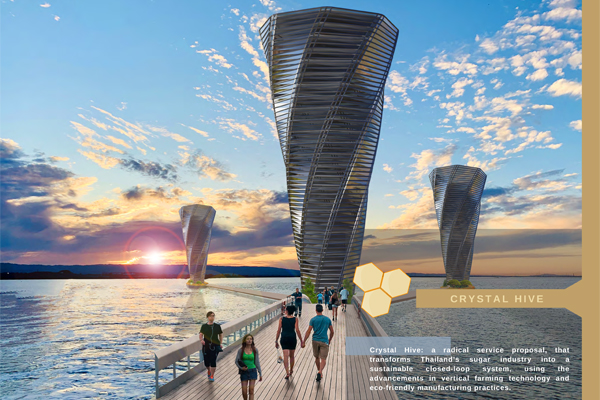
Tai Rosemin, BA Design, Lancaster University, England
Crystal Hive: A radical service proposal that transforms Thailand’s sugar industry into a sustainable closed-loop system using advancements in vertical farming technology and eco-friendly manufacturing practices.
Commended
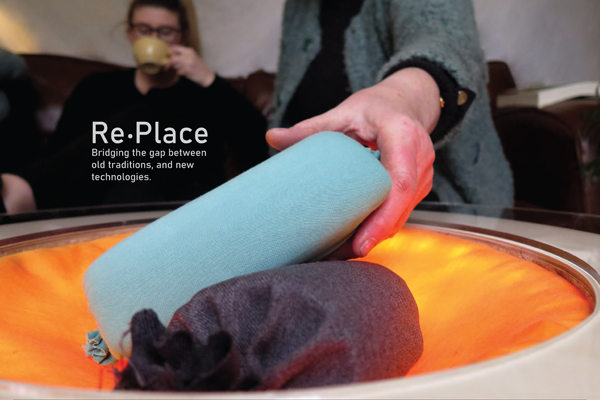
Aaron Conneely and Enya Carroll, Product Design, National College of Art and Design, Dublin, Ireland
RePlace: An alternative solution to traditional home hearths, which requires direct user interaction and acts as a social space and homage to our heritage.


